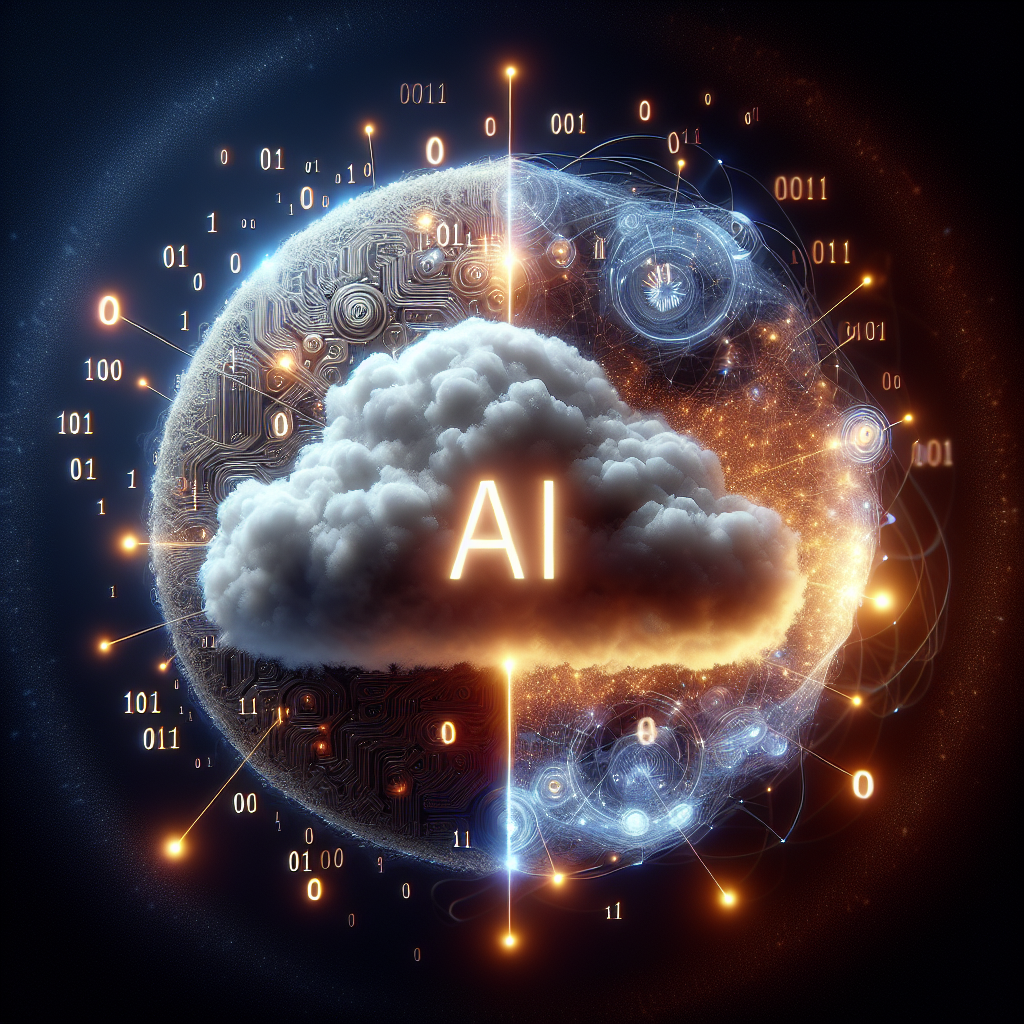Artificial Intelligence (AI) and Cloud Computing are two of the most transformative technologies of the 21st century. Individually, they have revolutionized the way we work, communicate, and live. But when these two technologies intersect, the possibilities are endless. In this article, we will explore the intersection of AI and Cloud Computing, and discuss how this convergence is reshaping industries, businesses, and our daily lives.
AI and Cloud Computing – A Powerful Combination
AI, the simulation of human intelligence processes by machines, has made significant strides in recent years. From self-driving cars to virtual assistants, AI has become an integral part of our daily lives. Cloud Computing, on the other hand, refers to the delivery of computing services over the internet, allowing users to access and store data and applications on remote servers rather than on their own devices.
When AI and Cloud Computing come together, they create a powerful combination that enables businesses to harness the full potential of AI without the need for large upfront investments in infrastructure. By leveraging the scalability and flexibility of cloud services, organizations can easily deploy AI applications, analyze massive amounts of data, and drive innovation at a rapid pace.
One of the key benefits of combining AI and Cloud Computing is the ability to access vast amounts of computing power and storage resources on-demand. This enables AI algorithms to process and analyze data faster and more efficiently, leading to better insights and outcomes. Additionally, cloud-based AI solutions can be easily integrated with existing systems and applications, making it easier for businesses to adopt and deploy AI technologies.
The Intersection of AI and Cloud Computing in Industries
The intersection of AI and Cloud Computing is transforming industries across the board. In healthcare, AI-powered diagnostic tools are being used to analyze medical images and detect diseases with greater accuracy and speed. By leveraging cloud-based AI solutions, healthcare providers can access real-time patient data, streamline workflows, and improve patient outcomes.
In finance, AI algorithms are being used to detect fraudulent activities, predict market trends, and automate trading processes. Cloud computing enables financial institutions to process and analyze massive amounts of data in real-time, leading to more informed decision-making and better risk management.
In manufacturing, AI-powered robots and machines are revolutionizing production processes, increasing efficiency, and reducing costs. By deploying AI algorithms on cloud platforms, manufacturers can optimize production schedules, predict equipment failures, and improve overall productivity.
The intersection of AI and Cloud Computing is also reshaping the retail industry. AI-powered chatbots and virtual assistants are being used to enhance customer service, personalize shopping experiences, and drive sales. By leveraging cloud services, retailers can analyze customer data in real-time, target specific customer segments, and deliver personalized recommendations.
The Future of AI and Cloud Computing
The future of AI and Cloud Computing looks promising. As AI technologies continue to evolve and become more sophisticated, the demand for cloud-based AI solutions is expected to grow. Cloud providers are investing heavily in AI capabilities, offering a wide range of services and tools to help businesses develop, deploy, and scale AI applications.
One of the key trends shaping the future of AI and Cloud Computing is the democratization of AI. As AI technologies become more accessible and affordable, businesses of all sizes will be able to leverage AI to drive innovation and gain a competitive edge. Cloud providers are playing a crucial role in this democratization process, offering AI services on a pay-as-you-go basis, making it easier for businesses to experiment with AI without the need for large upfront investments.
Another trend shaping the future of AI and Cloud Computing is the convergence of AI and Internet of Things (IoT) technologies. By combining AI algorithms with IoT devices, businesses can collect, analyze, and act on real-time data from connected devices, leading to smarter decision-making and improved operational efficiency. Cloud providers are developing AI-powered IoT platforms that enable businesses to deploy and manage IoT solutions at scale, driving innovation in industries such as smart cities, healthcare, and manufacturing.
FAQs
Q: What are some examples of AI applications in Cloud Computing?
A: Some examples of AI applications in Cloud Computing include virtual assistants, chatbots, predictive analytics, and image recognition. These applications leverage AI algorithms to analyze data, make predictions, and automate tasks, all of which are powered by cloud services.
Q: How can businesses benefit from the intersection of AI and Cloud Computing?
A: Businesses can benefit from the intersection of AI and Cloud Computing in several ways, including improved decision-making, increased efficiency, cost savings, and enhanced customer experiences. By deploying AI applications on cloud platforms, businesses can access powerful computing resources, analyze massive amounts of data, and drive innovation at a rapid pace.
Q: What are some challenges associated with the intersection of AI and Cloud Computing?
A: Some challenges associated with the intersection of AI and Cloud Computing include data privacy and security concerns, regulatory compliance, and the need for skilled AI and cloud professionals. Businesses must ensure that they have robust data protection measures in place when deploying AI applications on cloud platforms and comply with relevant regulations to avoid potential risks.
In conclusion, the intersection of AI and Cloud Computing is reshaping industries, businesses, and our daily lives. By leveraging the scalability and flexibility of cloud services, organizations can harness the full potential of AI and drive innovation at a rapid pace. As AI technologies continue to evolve and become more accessible, the future of AI and Cloud Computing looks promising, with endless possibilities for businesses to transform and thrive in the digital age.

